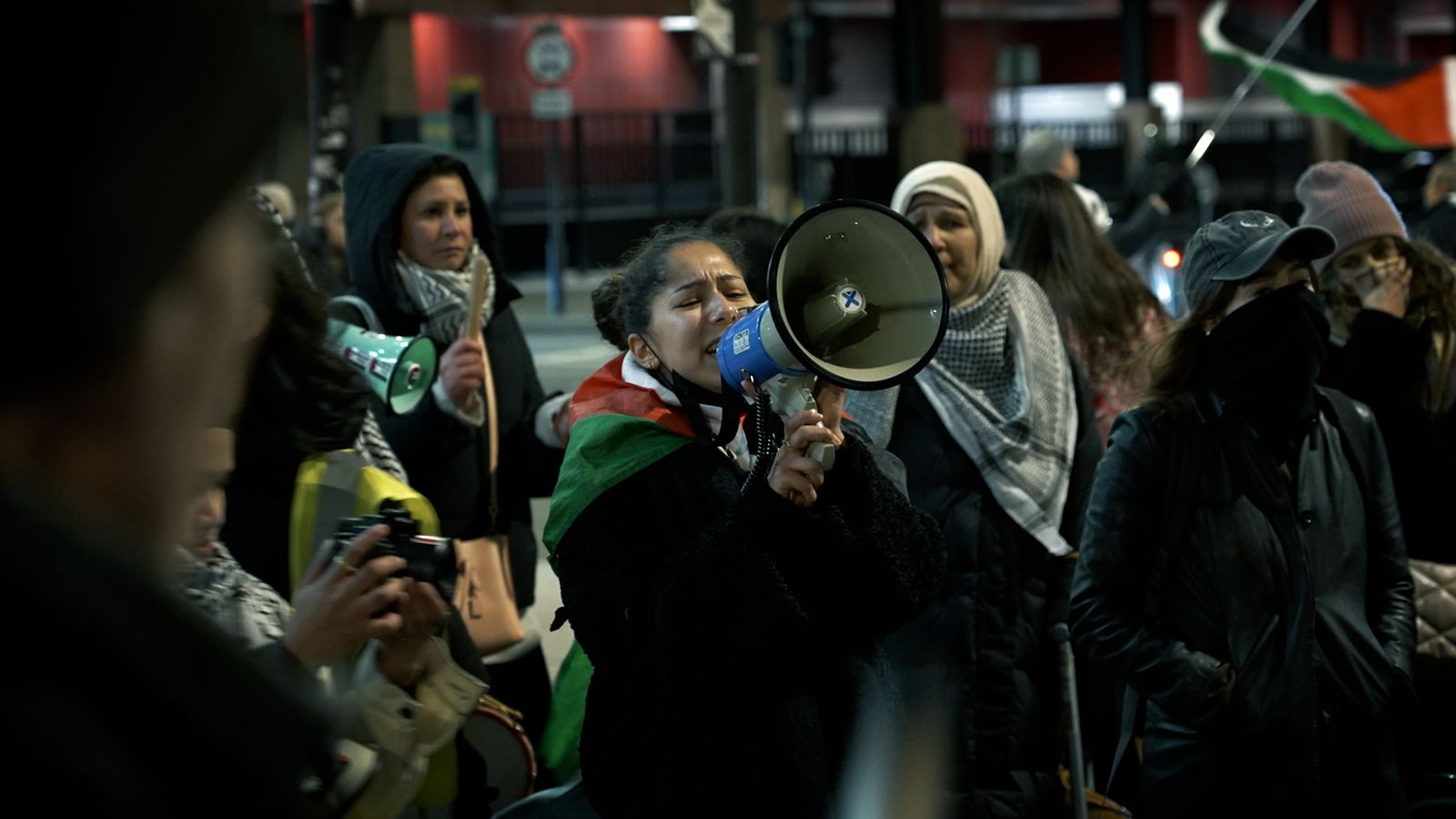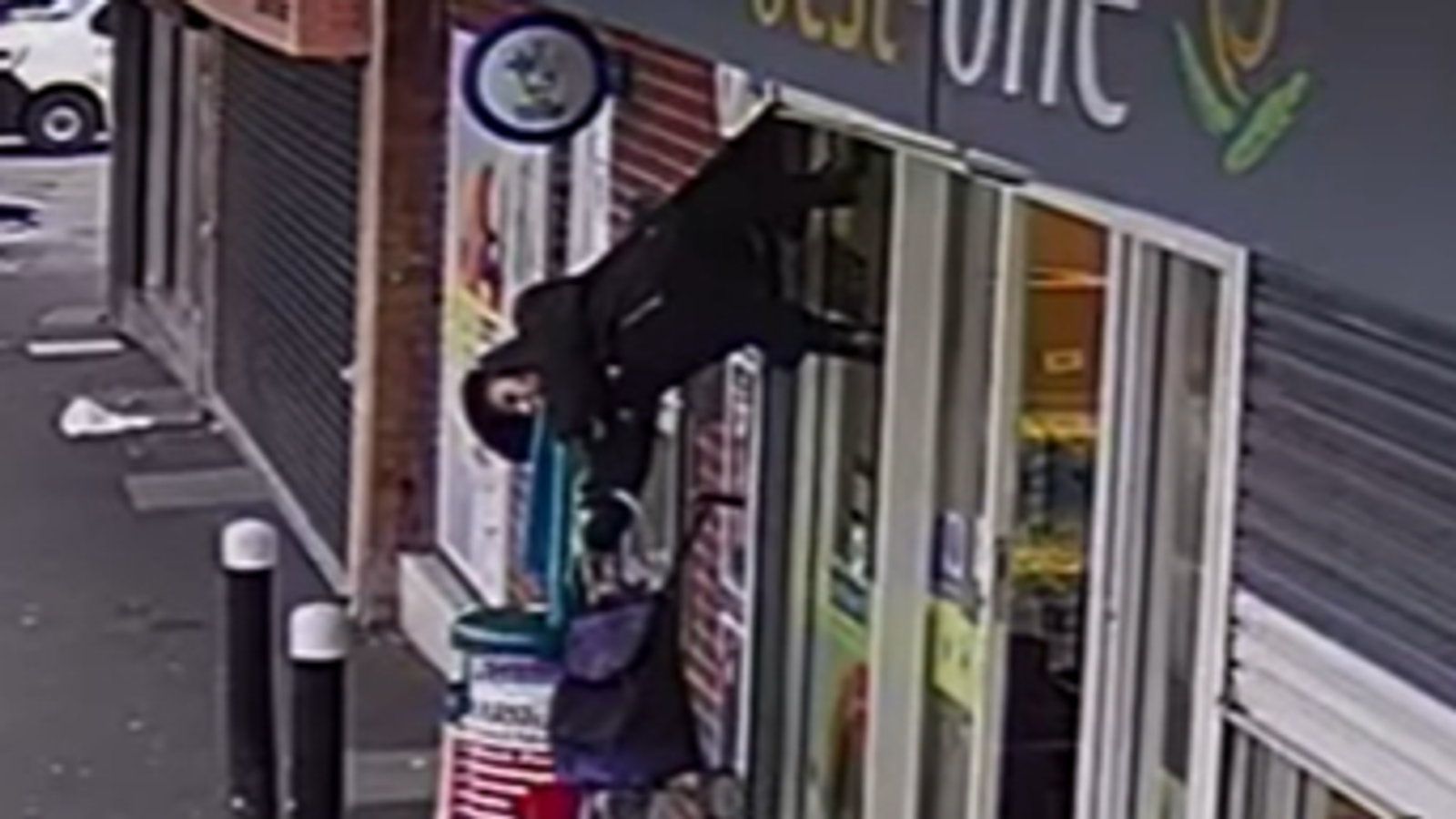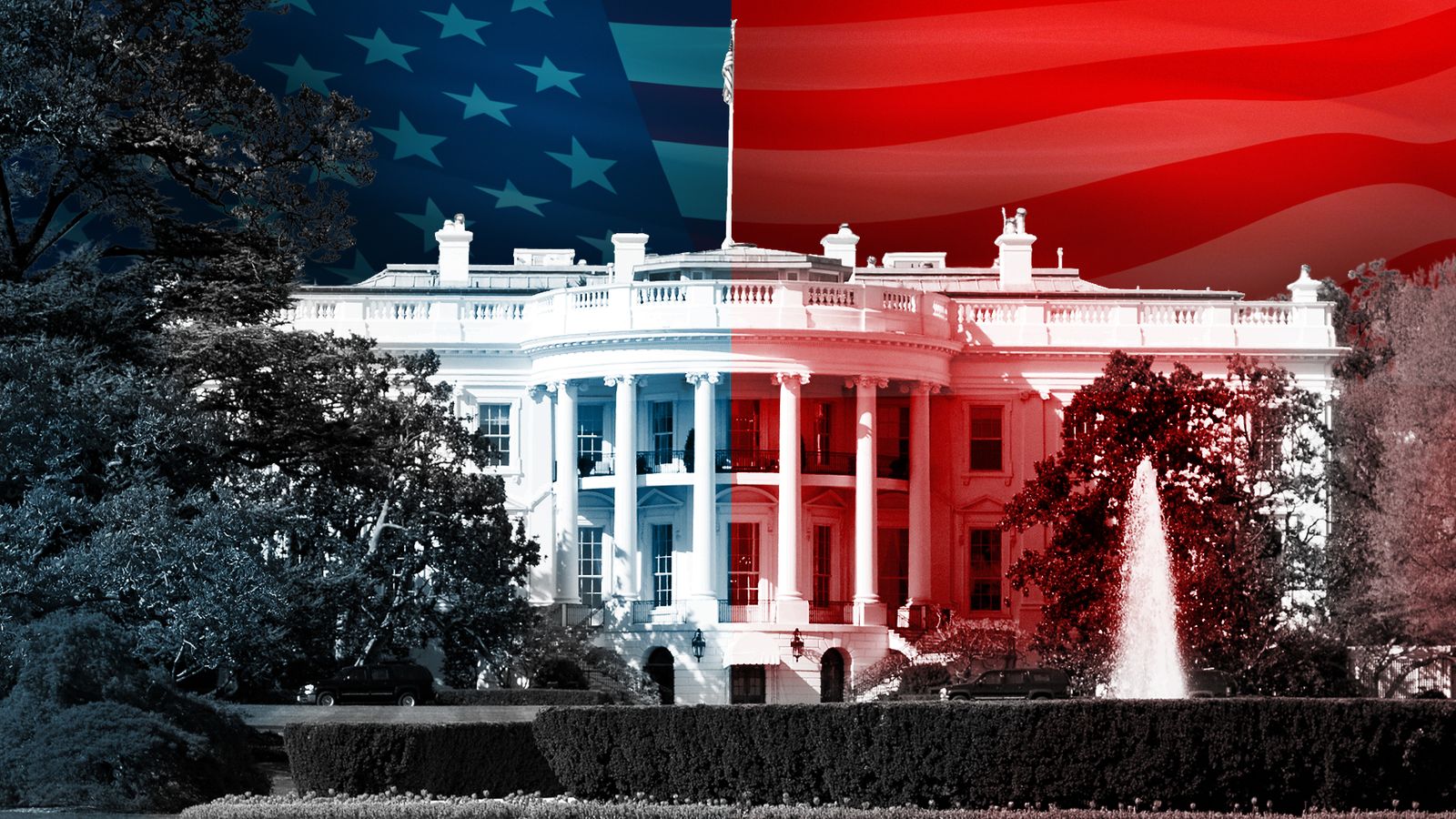A banner filled with the names of children killed in Gaza stretched down the street across the road from St Pancras Station.
Activists with megaphones and Palestinian flags had descended on Camden Town Hall demanding the north London council call a motion for a ceasefire in Gaza.
It was a moment to test feelings about the question raised by Prime Minister Rishi Sunak in his speech outside Downing Street on Friday.
When does protest shift from being a vital part of our democracy to threatening it?
At around 5.30pm in the evening, a notice went up telling members of the public they wouldn’t be allowed access to the public gallery for that evening’s council meeting.
It was a last-minute decision, as an earlier notice had warned of bag searches for numerous items including banners, balloons, whistles, glue, paint and climbing gear.
US vice president Kamala Harris demands ‘immediate ceasefire’ in Gaza, calling for Hamas to accept terms – as Israel ‘boycotts’ talks
A fresh truce between Israel and Hamas could be highly significant – in more ways than one
US defence secretary’s comments suggest Israel is nowhere close to destroying Hamas
This was a response to what happened at the last meeting in January, when there were multiple noisy disruptions from protesters in the gallery – one activist even throwing a child’s shoe down on to councillors.
It was with this kind of disruption in mind that last week Mr Sunak said: “Our democracy itself is a target, council meetings and local events have been stormed… On too many occasions recently, our streets have been hijacked by small groups who are hostile to our values and have no respect to our democratic traditions.”
Please use Chrome browser for a more accessible video player
‘We do not want to bring about peace with violence’
Outside the Town Hall, protest organiser from Camden Friends of Palestine Rahmeh Aladwan told Sky News: “I work in the NHS, the first thing we think about is patient safety.
“We do not want to bring about peace with violence. I think when the prime minister said what he said, I very much struggle to know where that’s coming from, apart from the fact that he wants to stop us because our needs are not being met by him.”
Protester Rahima Kamaly added: “I think a lot of what was said by the prime minister felt very Islamophobic, comparing people who are peacefully protesting to people who are violent is just wrong.”
A Labour councillor from nearby Islington, Ilkay Cinko-Oner, who brought about a ceasefire motion in her own council, said: “How can you say that this is a hijack?
“I only see people wanting peace. I only see people demanding the ceasefire. It’s to dehumanise us. To de-legitimise the struggle, to say that these people are only here for disruption, and that by lobbying councils it’s not going to make a difference. But it does.
“Councils can lobby central government. They can put pressure on their MP, and they can stand on the side of the people who elected them.”
Inside the council meeting, Andrew Maughan, Camden Council borough solicitor, explained the “extremely rare” decision to close the public gallery using common law powers.
He noted how, last month, protesters in the gallery had used the tactic of individually disrupting the meeting one by one – so each time a protester was removed, another began.
“As soon as one left, another stood up – this technique has been passed around London,” Mr Maughan said.
He also defended a decision not to allow the activists’ request to formally address the council meeting, saying: “One factor is the amount of business tonight” – but he also argued that the council had very little influence on events in the Middle East.
During the meeting, with an empty public gallery, Camden Council leader Georgia Gould acknowledged the protest outside and expressed her support for a humanitarian ceasefire.
But she added: “Our role is to support our community… keep communities safe in the face of rising Islamophobia and rising antisemitism.”
Council refutes claims pension funds were invested in Israel
If allowed to speak, activists from Camden Friends of Palestine would have told the council to support an immediate ceasefire in Gaza and “to stop actively funding Israel“, claiming the council’s pension funds invested millions into the country.
The council refutes this.
Be the first to get Breaking News
Install the Sky News app for free
A spokesperson told Sky News: “The claim that the pension fund has £35m invested in this way is wrong.
“We estimate that we have a £7m indirect exposure through our ownership of industry-standard pooled investment funds rather than having directly invested in these companies through stock ownership.
“The pension fund is valued at around £2bn and this exposure accounts for about 0.34% of the fund’s value.
“The pension fund is committed to being a responsible investor and the body that represents it has written to a range of companies relating to Palestine and Israel and requested human rights impact assessments be conducted.”
Please use Chrome browser for a more accessible video player
Read more:
US vice president demands immediate Gaza ceasefire
Why this week could be critical for Gaza
Starbucks partner ‘to cut jobs’ over Gaza-linked protests
Recently, members of Camden Friends of Palestine heckled Labour leader Sir Keir Starmer, shouting: “complicit in genocide” as he walked down the street with his wife in his Holborn and St Pancras constituency.
Most activists at the demonstration outside the Town Hall disagreed with the idea of campaigning outside the homes of politicians – as had happened with Conservative MP Tobias Elwood.
However, protester Sam Weinstein said it was legitimate.
“They’re the ones that are intimidating us,” he said. “They are trying to say that we can’t protest. They do not represent us. More than 75% of the population in this country wants an immediate ceasefire. Now, why is it that the politicians want to hide in their houses?”
The drums beating, horns bleeping and the shouts of “Free Palestine!” outside Camden Town Hall is just a snapshot of a growing fracture between those who say this protest, however important, is breaking down the authority of our institutions – and those who feel the authorities aren’t listening.








